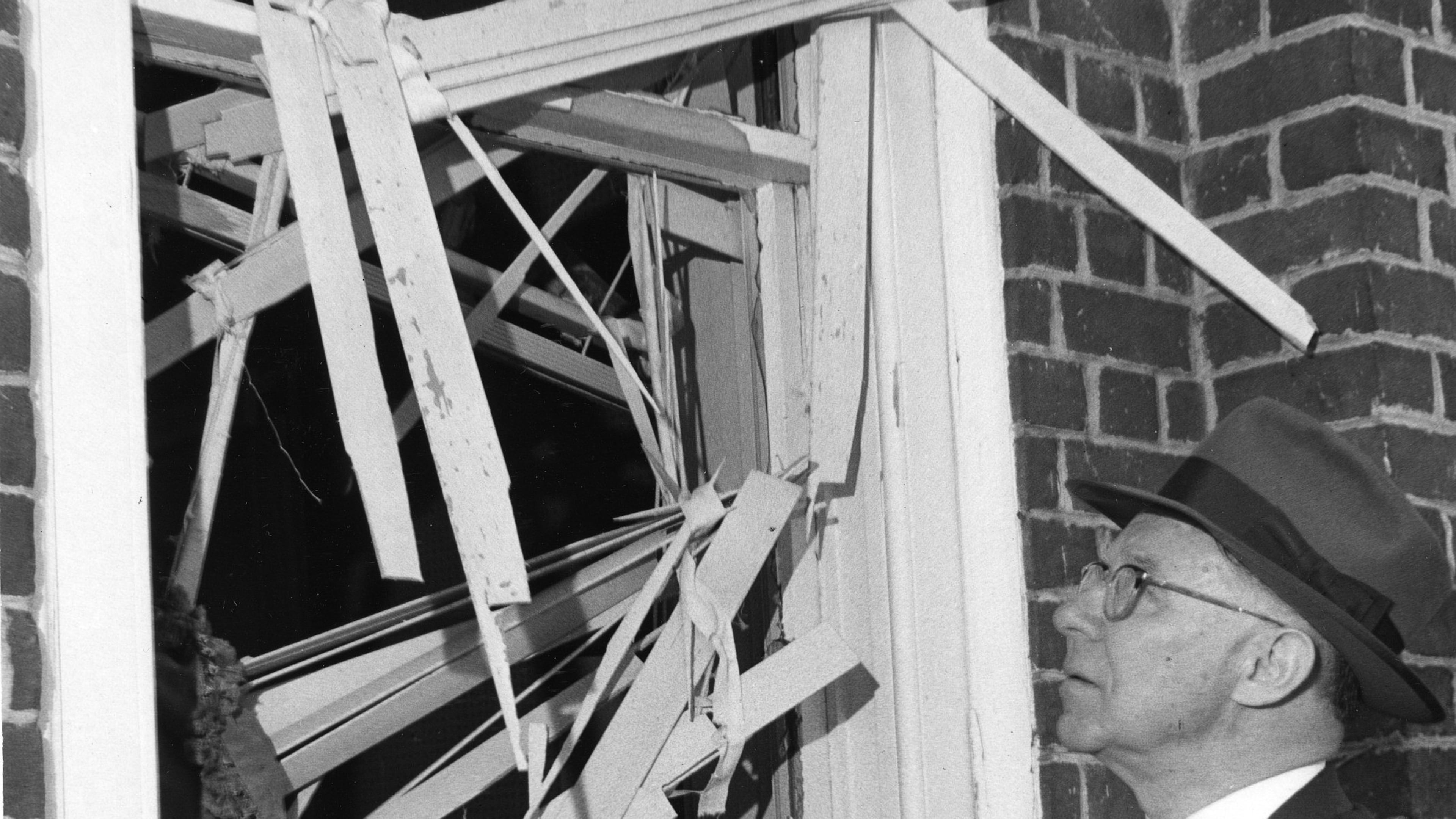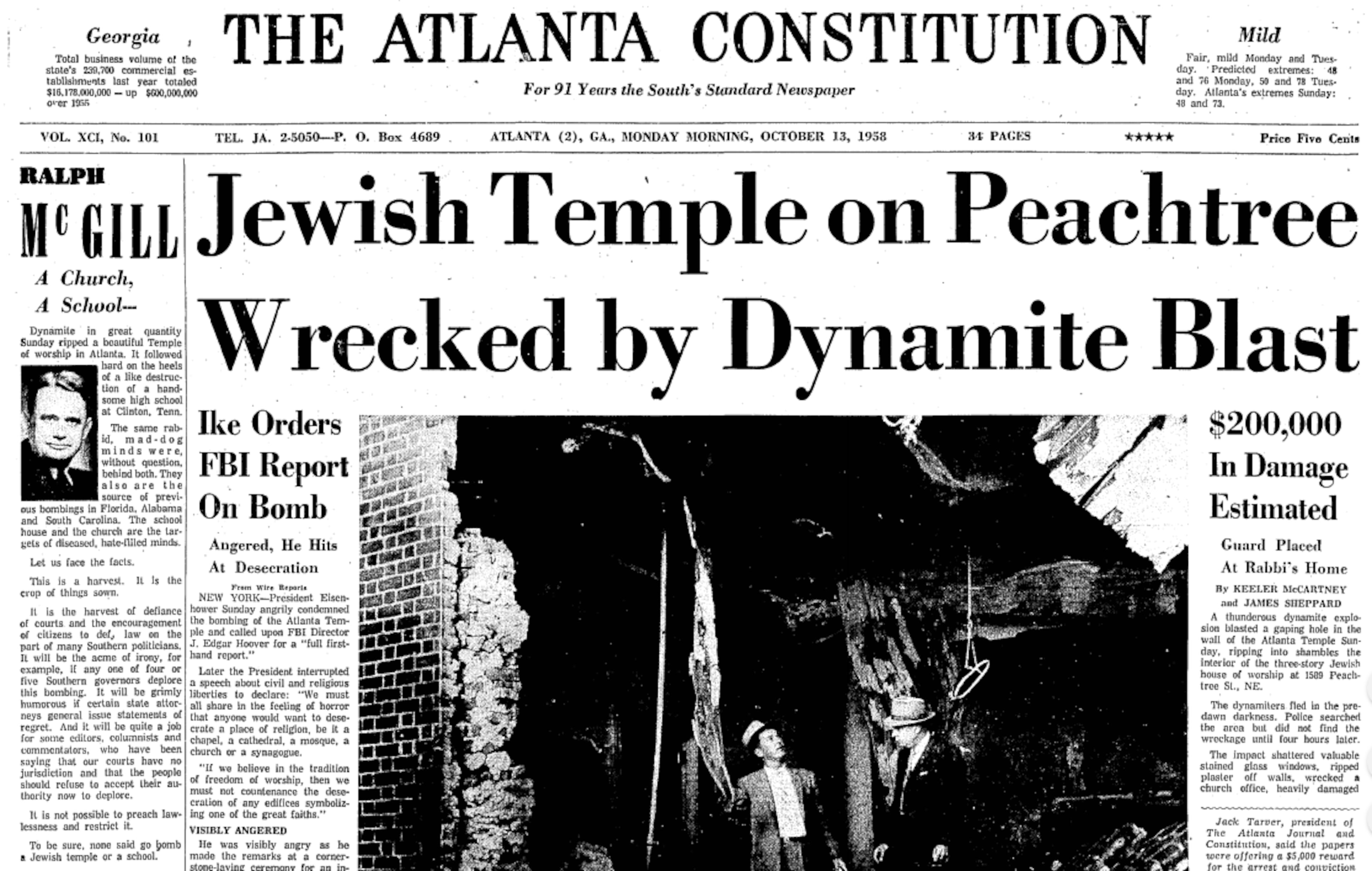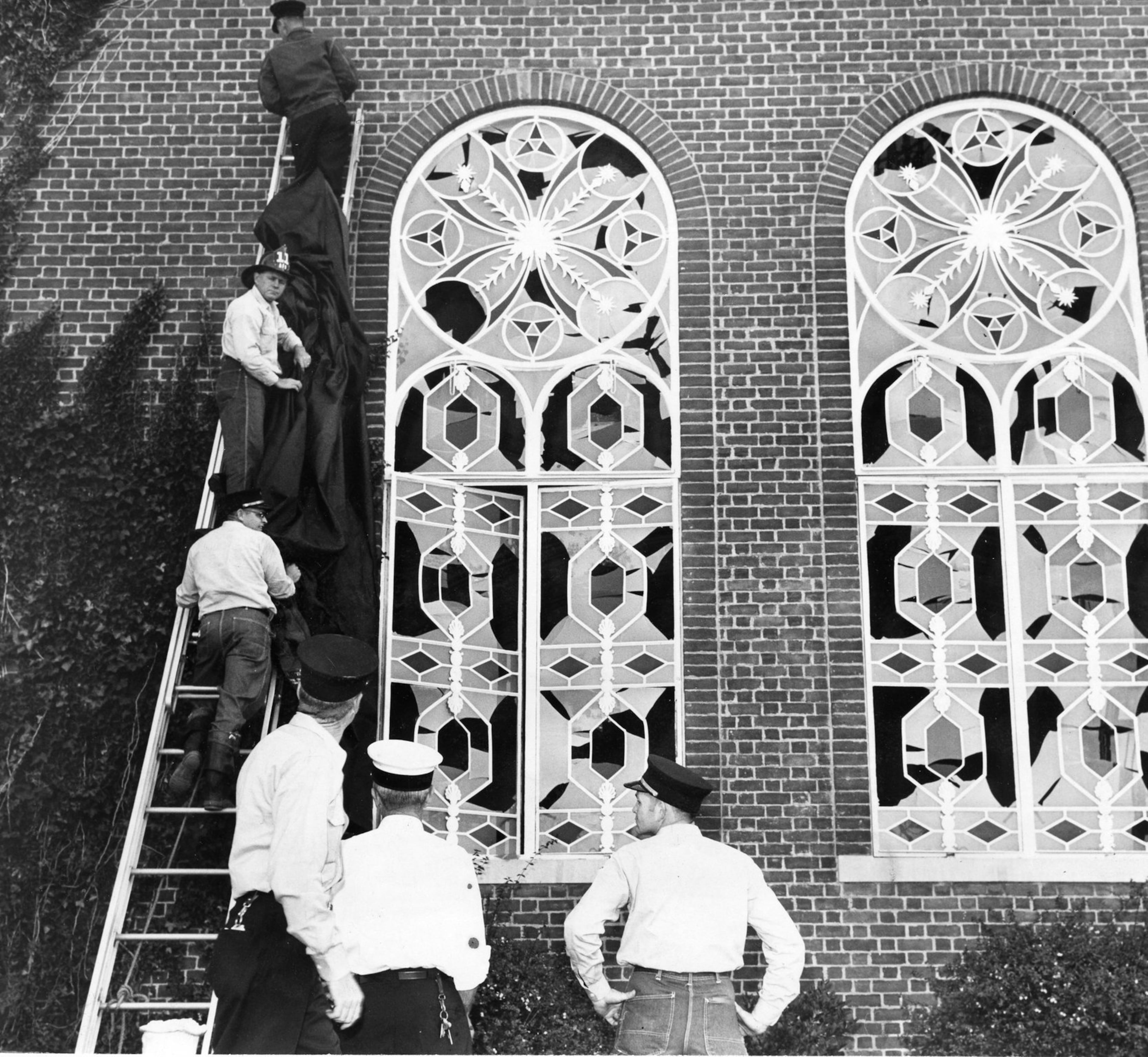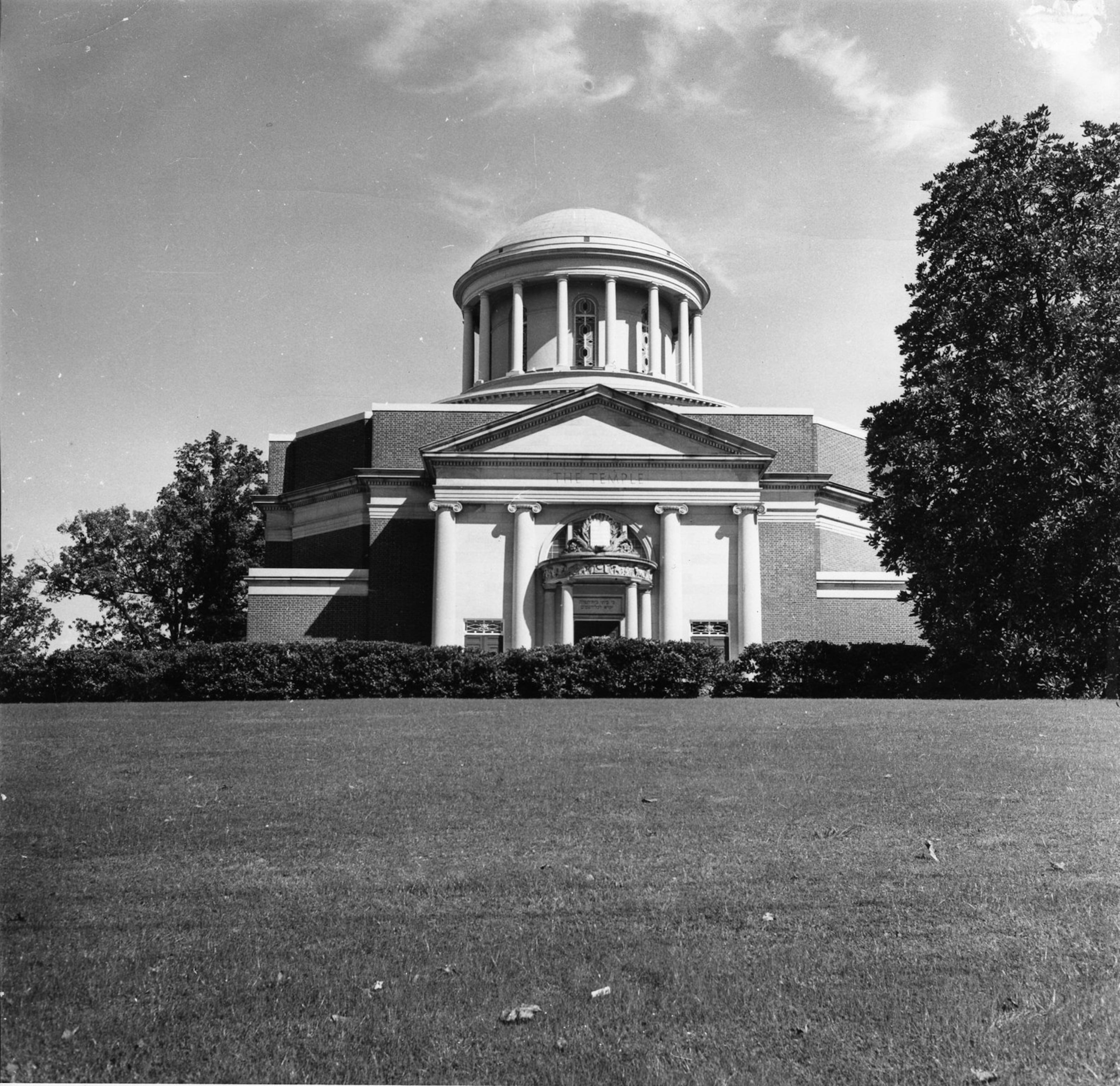Denunciation of 1958 Atlanta Temple bombing still relevant today

Editor’s note: The following column by The Atlanta Constitution Editor Ralph McGill was published in 1958, the day after the bombing of The Temple synagogue on Peachtree Street on Oct. 12, 1958.
The original headline: A Church, a School
Dynamite in great quantity Sunday ripped a beautiful Temple of worship in Atlanta. It followed hard on the heels of a like destruction of a handsome high school at Clinton, Tenn.
The same rabid, mad-dog minds were, without question, behind both. They also are the source of previous bombings in Florida, Alabama and South Carolina. The school house and the church are the targets of diseased, hate-filled minds.
Let us face the facts.
This is a harvest. It is the crop of things sown.
It is the harvest of defiance of courts and the encouragement of citizens to defy law on the part of many Southern politicians. It will be the acme of irony, for example, if any one of four or five Southern governors deplore this bombing. It will be grimly humorous if certain state attorneys general issue statements of regret. And it will be quite a job for some editors, columnists and commentators, who have been saying that our courts have no jurisdiction and that the people should refuse to accept their authority now to deplore.
It is not possible to preach lawlessness and restrict it.
To be sure, none said go bomb a Jewish temple or a school.
Gates Opened
But let it be understood that when leadership in high places in any degree fails to support constituted authority, it opens the gates to all those who wish to take law into their hands.
There will be, to be sure, the customary act of the careful drawing aside of skirts on the part of those in high places.
“How awful, ” they will exclaim. “How terrible. Something must be done.”

But the record stands. The extremists of the citizens’ councils, the political leaders who in terms violent and inflammatory have repudiated their oaths and stood against due process of law have helped unloose this flood of hate and bombing.
This, too, is a harvest of those so-called Christian ministers who have chosen to preach hate instead of compassion. Let them now find pious words and raise their hands in deploring the bombing of a synagogue.
You do not preach and encourage hatred for the Negro and hope to restrict it to that field. It is an old, old story. It is one repeated over and over again in history. When the wolves of hate are loosed on one people, then no one is safe.
Hate and lawlessness by those who lead release the yellow rats and encourage the crazed and neurotic who print and distribute the hate pamphlets, who shrieked that Franklin Roosevelt was a Jew; who denounce the Supreme Court as being Communist and controlled by Jewish influences.
The Harvest
This series of bombings is the harvest, too, of something else.
One of those connected with the bombing telephoned a news service early Sunday morning to say the job would be done. It was to be committed, he said, by the Confederate Underground.
The Confederacy and the men who led it are revered by millions. Its leaders returned to the Union and urged that the future be committed to building a stronger America. This was particularly true of Gen. Robert E. Lee. Time after time he urged his students at Washington University to forget the War Between the States and to help build a greater and stronger union.
But for too many years now we have seen the Confederate flag and the emotions of that great war become the property of men not fit to tie the shoes of those who fought for it. Some of these have been merely childish and immature. Others have perverted and commercialized the flag by making the Stars and Bars, and the Confederacy itself, a symbol of hate and bombings.
For a long time now it has been needful for all Americans to stand up and be counted on the side of law and the due process of law — even when to do so goes against personal beliefs and emotions. It is late. But there is yet time.

About the bombing
The bombing of The Temple, which has been called the most violent episode of the civil rights era in Atlanta, happened before dawn on Sunday, Oct. 12, 1958. The building was not occupied when the dynamite blast ripped a gaping hole in a side wall, damaging an offic and several classrooms. Debris, including plaster and glass, were found in the sanctuary.
RELATED: Historical marker stands outside The Temple
RELATED: Read more about the 1958 Temple bombing

About Ralph McGill
Ralph McGill was a longtime editor and publisher of the Atlanta Constitution. His front page daily opinion column often touched on topics of civil rights. He won the Pulitzer Prize in 1959 for editorial writing, including his "A Church, a School," about the aftermath of the Temple bombing of 1958. Read a profile of Ralph McGill by AJC reporter Ernie Suggs.
RELATED: Ralph McGill's column about the assassination of Martin Luther King Jr.
About this editorial
‘A Church, a School’ was a column often reprinted and was cited a year later, in 1959, when McGill won the Pulitzer Prize for editorial writing. His friend and biographer Harold Martin wrote that McGill had been out of town and out of contact most of the day that Sunday, long before the convenience of cell phones. Learning the news from his wife at their front door, McGill went immediately to his office at The Atlanta Constitution, Martin wrote, and “in twenty minutes of furious uninterrupted writing, he produced three typewritten pages that smoked with anger and with shame.”

